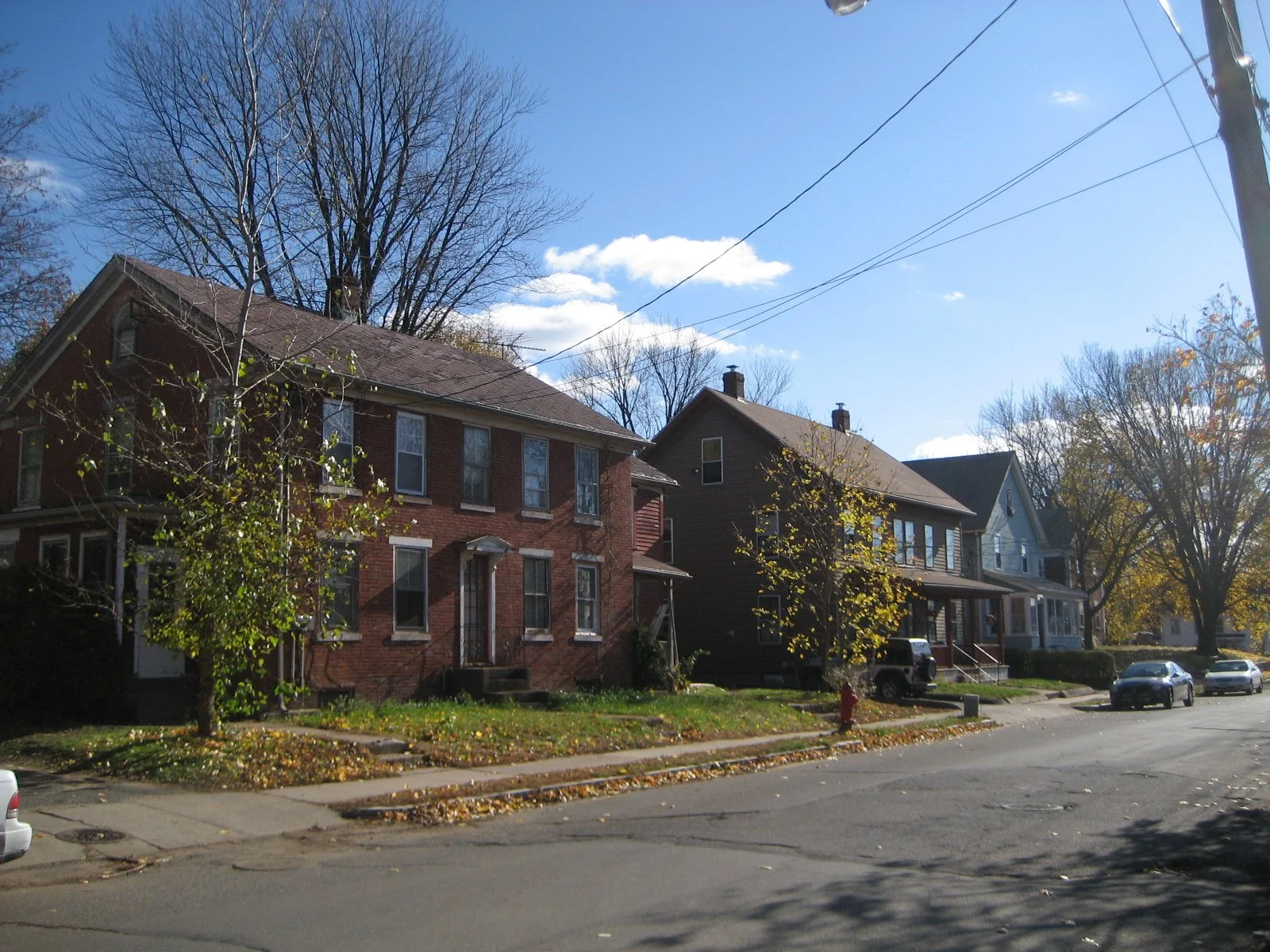Chris Powell: Racism? Get specific; pass Larson’s Social Security bill
The village of Thompsonville, in Enfield, Conn. Thompsonville was established in the 19th Century as a carpet-manufacturing center. Orrin Thompson, for whom the community is named, built a dam across Freshwater Brook in 1828 and opened the first carpet mill in 1829. Thompson's first mill employed skilled weavers brought from Scotland.
Carpeting continued to be manufactured in Thompsonville until 1971, by which time most production had shifted to the southern United States.
— Photo by Mirandalovely (talk)
MANCHESTER, Conn.
How racist is Enfield, Conn.? Town government's overreaction to a recent disgraceful but trivial incident is giving the impression that the town has become the northern headquarters of the Ku Klux Klan, even though the incident could have happened anywhere.
It occurred as members of the Enfield High School football team were knocking on doors throughout town soliciting financial donations. At one door a Black player was scorned and sent away with a racial epithet from the resident. Police investigated but determined that, abhorrent as the resident's conduct was, there was no cause for arrest.
Whereupon town government convened another of those "community conversations on race," as if the whole town needed to be lectured on decent behavior.
Maybe Enfield really is that hateful. But if so, specific evidence of anything seriously wrong in town regarding race has not been reported and was not produced at the first "community conversation," which drew about 200 people to Enfield High School. Instead the moderator urged people to examine their own consciences about race, as if some might be obliged to make confession.
In the absence of evidence apart from a single small incident, summoning a "community conversation" was presumptuous, if also politically correct.
Enfield and other towns should have a "community conversation" on race, but of a different sort — that is, regular hearings to air specific complaints about racism in town and to investigate them.
The perpetrator of the insult to the high-school football player is known to police, the player and others and should be invited to the first such hearing along with the insulted player for questioning and discussion. Other witnesses to what they consider racism in town should come forward too and their complaints should be followed up at future hearings, with the accused people and institutions invited. Town officials and residents then could discuss what if anything should be done.
Such procedure would generate real and relevant conversations, not the pious and irrelevant handwringing of the first "community conversation." Far more than such handwringing, a hearing on specifics might deter racists, warning them that they might be held accountable in public for their hatefulness.
More likely, of course, such a procedure would generate few if any complaints of racism in Enfield. Maybe then the town could begin to get its good name back and, along with Connecticut generally, might pay less attention to the occasional, and trivial misconduct of jerks on their own doorsteps and more attention to the state's longstanding racial disparities.
Those disparities include the racial-performance gap in education, zoning's obstruction of racial and economic integration, and welfare policy's destruction of the family and creation of a racial underclass.
Obsessing about occasional racist epithets uttered by nobodies is a pathetic copout.
xxx
As they campaign for re-election, Democrats on the national and state level are touting lots of new programs created in the name of alleviating poverty, even as soaring inflation, caused in part by the explosion of those programs and other government spending, erases the programs' benefits.
Meanwhile, the nation's most comprehensive anti-poverty program, Social Security, is eroding under that inflation even as Connecticut's own U.S. Rep. John B. Larson bravely keeps pressing legislation to improve the system's benefits and finances.
But according to a recent report in Politico, Larson's Social Security bill is being blocked not by the usual retrograde Republicans in Congress but by the Democratic leader in the House, Speaker Nancy Pelosi.
Larson's bill isn't another giveaway to be financed by debt and inflation. It would be financed largely by eliminating the limit on Social Security taxes paid by high earners, whose Social Security taxes now are capped at the first $400,000 of annual income.
Pelosi and her husband have gotten rich trading stocks whose values are heavily affected by the federal legislation she steers and votes on. Her party should push her out of the way and pass Larson's Social Security bill while the Democrats still have a majority in Congress and a president who would sign it.
Chris Powell is a columnist for the Journal Inquirer, in Manchester. He can be reached at CPowell@JournalInquirer.com.
